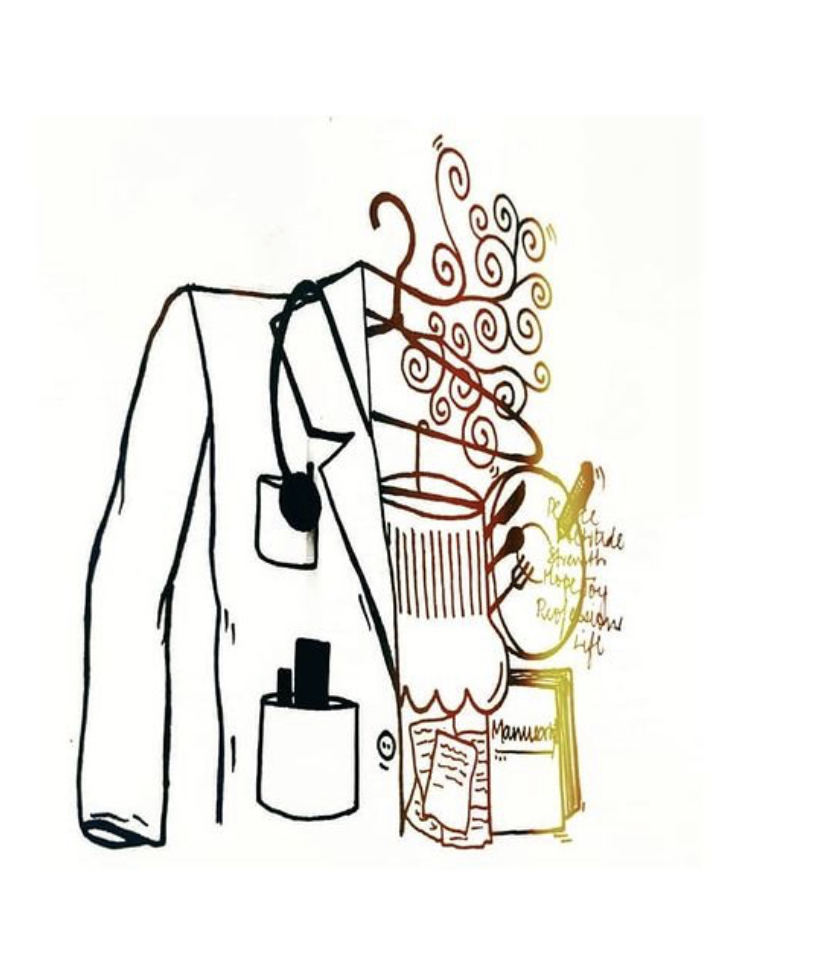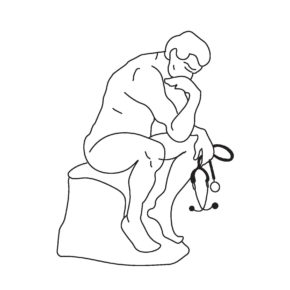Another day passed as I approached the deadline of my latest assignment. Our professor asked students rotating in the ICU to reflect and write up a patient encounter that influenced them deeply.
In an effort to encourage a more humane and nuanced understanding of medicine, this was part of a series of reflective assignments being introduced in medical schools. While the budding writer in me was delighted at this prospect, the medical student, ironically, was not as thrilled.
This was not because I doubted the value of reflection in medicine. Rather, my concerns were rooted in the likely threat of a vital learning tool being reduced to an assignment of little consequence. The risk of ignoring its various subtleties amidst the cut-throat rigors of medical school was very real. I feared checklist-wielding academics (and students) were diminishing the legitimacy of such reflective exercises that otherwise aimed to nurture doctors capable of thinking, feeling and caring.
Still, considering its educational importance, any headway we make in this pedagogy is always welcome. Besides, implementation of any theoretical framework is bound to experience some friction in practice. I therefore decided it was wiser to avoid fixating on my above fears. Instead, I chose to look at the larger picture. And the promise to shape self-aware physicians who were critical thinkers and active learners was an important aspect of this picture. With that as my newfound resolution, I was determined to approach these assignments with an open mind.
Except there was one (not-so-tiny) problem: we weren’t really reflecting.
Although activities that promote reflection are being incorporated into undergraduate, graduate and continuing medical education, there has been a lack of actual reflection in most of these settings. Students often merely ‘describe’ their experiences rather than reflect upon them. This problem demands a more robust framework for reflective writing strategies — for using ‘reflection’ in medical education with more precision and thoughtfulness.
As I mentioned above, any headway is welcome. But considering how transformative reflective practices can be in our professional identity formation, we need to give reflection the time and intention it deserves.
That said, describing an experience does play its own role in professional identity formation. When it comes to the cognitive nature of our job, being able to integrate those experiences into our knowledge base is essential. However, making sense of that experience for our professional (and personal) growth requires a deeper degree of inquiry. And undoubtedly, the responses to this inquiry are influenced by one’s beliefs, assumptions and previous experiences themselves. Even within a single person’s inquiry, their intersectional identities may evoke varying responses: the medical student in me, for example, might respond differently to a patient encounter than, say, the writer in me.
Indeed, being able to reflect in this manner is an essential but challenging skill. Reflection, after all, helps physicians critically evaluate not just evidence but also their own experiences and values. By encouraging them to deeply think about their own personal experiences, reflection hones clinical judgment as much as it fosters empathic qualities. Incorporating these into medical curricula has thus been an important step in training future physicians.
Image credit: Custom drawing by Urvashi Lodha.
Compounded by the anxieties of sharing an experience with others and subsequently inviting judgment makes such assignments all the more difficult. While evaluators may resist the temptations to grade grammar and writing style, the question of ownership to assess reflections becomes essential.
Wald and colleagues introduced reflective writing assignments with ongoing instruction in clinical skills and professionalism for preclinical students. Besides engaging students in the more affective domains of medicine, this module aimed to also develop critical thinking skills among them. Interestingly, feedback to students was provided by a faculty member in medicine and a socio-behavioral scientist in an individualized manner, which made this process more interactive. Additionally, students found the small group format more conducive to deeper discussions and forging interpersonal connections as opposed to being anxious about inviting judgment.
Still, assessing these reflections to generate feedback from a third-, second- or even first-person perspective can be an uphill task. No assessor can bracket their preconceived notions to the extent of being completely free of perspective. They may discover close and distant affinities to different aspects of the reflection. Their ability to ‘make sense of the experience’ in a given student’s reflection depends on their own past experiences as well. This is bound to interfere with their ability to assess and provide feedback. Moreover, there is an added possibility of conflating their positions with those of the writer, creating a new narrative that belongs to neither.
In her work exploring educational reformer John Dewey’s work on reflection, Carol Rodgers reveals problems with systematic, reflective thinking. She remarks, “Reflection has suffered from a loss of meaning. In becoming everything to everybody, it has lost its ability to be seen.” While we wade past this challenge, another one awaits us. One that either obfuscates the experiences of the student or merges their collective experiences unintentionally. Having some degree of narrative competence may prove useful in what might seem an onerous task for medical educators and students worldwide. Nevertheless, it holds the promise of producing doctors competent enough to value reflective practice.
Contemporary medical curricula seek to equip students with reflective capacity, though many challenges still persist. Educators need to be committed to avoid compromise in the iterative process that is essential to the process of reflecting on experiences. More insights need to be developed to establish best practices associated with capturing students’ thought processes in order to assess them and generate feedback.
Whether it’s the inequities in health care, the pandemic of misinformation or the growing interface between health and technology, the coming years shall pose many uncertainties in the practice of medicine. Negotiating our way through these uncertainties requires a commitment to critical thinking, sound judgment and humanistic competence. Reflective practice equips us with all these skills necessary to grapple with the challenges of medical practice in the coming years. This shall, after all, lay the foundations as we move further along our careers to become competent physicians.
Image credit: Custom drawing by Akanksha Mishra for this column.
Medical education today struggles to keep pace with actual medical practice. Moving from an information-driven curriculum to a value driven one has propelled a vast array of research and scholarship in teaching methods, assessments and competencies. In this column, I hope to share insights on some of these areas as well as call for learning that is more adaptive and less standardized.


